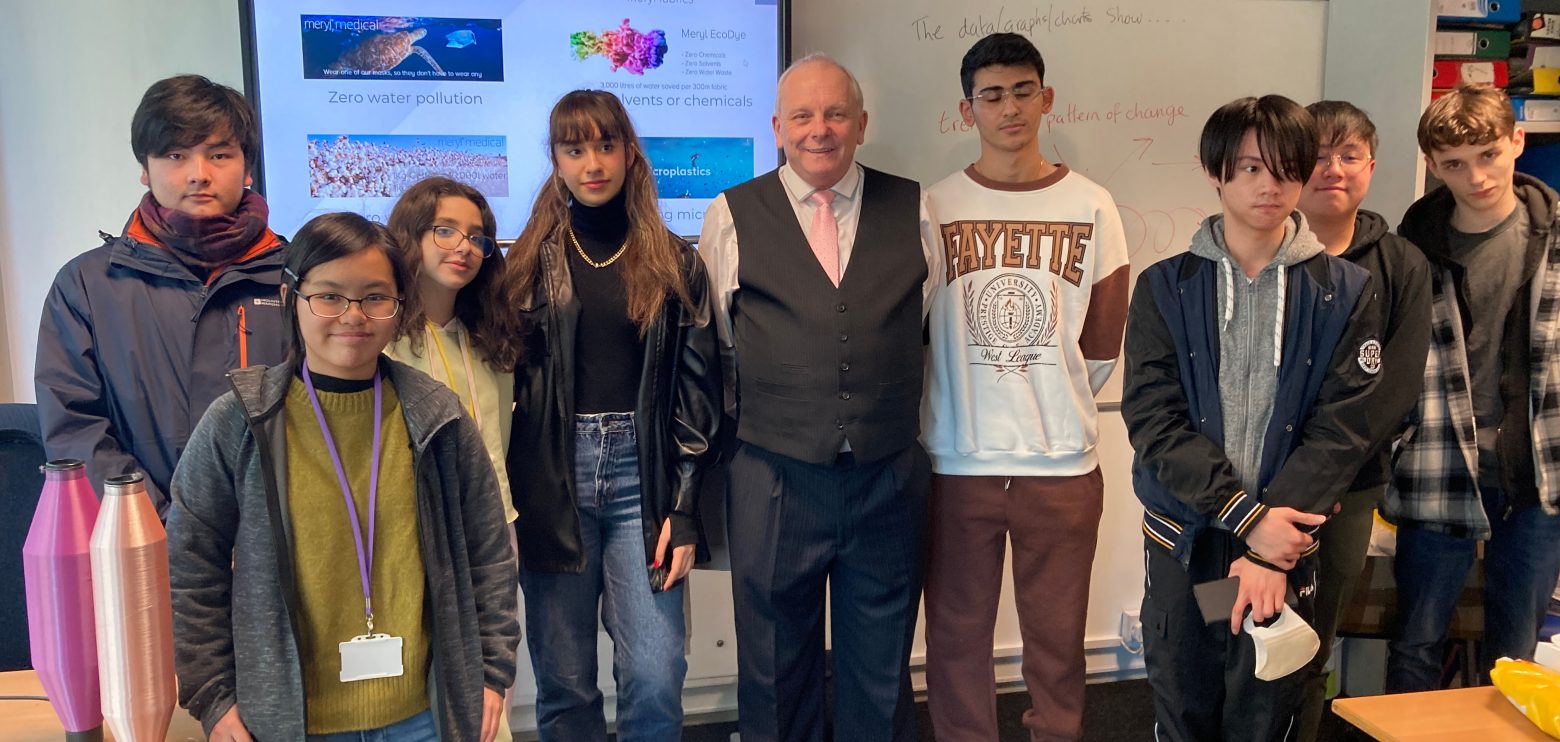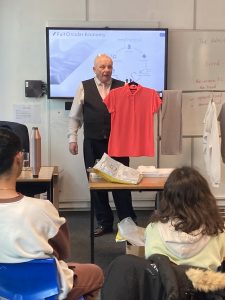Guest Speaking Session on Sustainability
28th February 23

Students at the college recently gained an invaluable insight into environmentally-friendly textile development from Meryl Fabrics®, pioneers in hi-tech sustainable materials and owners of the first in-house circular economy offering in textiles.
With a passion to support future generations in making a difference, members of the Meryl Fabrics team were welcomed into college where they delivered an informative, in-person presentation during the afternoon enrichment period. Enthusiastic A Level and GCSE students studying Textiles, Environmental Science and Science explored the extent in which textile production is adversely impacting the environment and the latest technologies designed to mitigate future harm.
As part of the hands-on session, students were able to investigate samples of the sustainable fabrics and garments. They were also offered the opportunity to put forward questions to the Meryl Fabrics team, where they developed their knowledge on a variety of subjects including antimicrobial technology, the circular economy and manufacturing and production costs.
Chloe McLaughlin, Teacher of Physics, Science Enrichment Lead and Head of House at Abbey College Manchester commented: “We are very grateful to Peter and Kevin from Meryl Fabrics for taking the time out of their busy schedules to present to our students during the afternoon enrichment session. Peter and Kevin delivered a highly insightful and engaging presentation, piquing the interest of our students keen to explore this incredibly important topic further.
“Our diverse Enrichment Programme at Abbey College Manchester very much supports our academic curriculum, forming an integral part of the wider education and college experience offered to our students. Opportunities such as the guest speaking session from the Meryl Fabrics team afford our students the opportunity to broaden their horizons beyond the curriculum, further developing their skills.”
Peter Broom, Co-Founder and Technical Innovator at Meryl Fabrics added, “The last two years has seen us cover a lot of ground in imparting our knowledge on revolutionising the way in which textiles are manufactured, to eliminate microplastic shedding and reduce the overall environmental impact of professional clothing by closing the loop. However, much of this has been industry focussed.
“For real, sustainable change to take place, we must capture the attention, the hearts and the minds of the industry leaders of tomorrow by supporting students keen to make a real difference, such as the individuals we were lucky enough to meet at Abbey College Manchester.”







